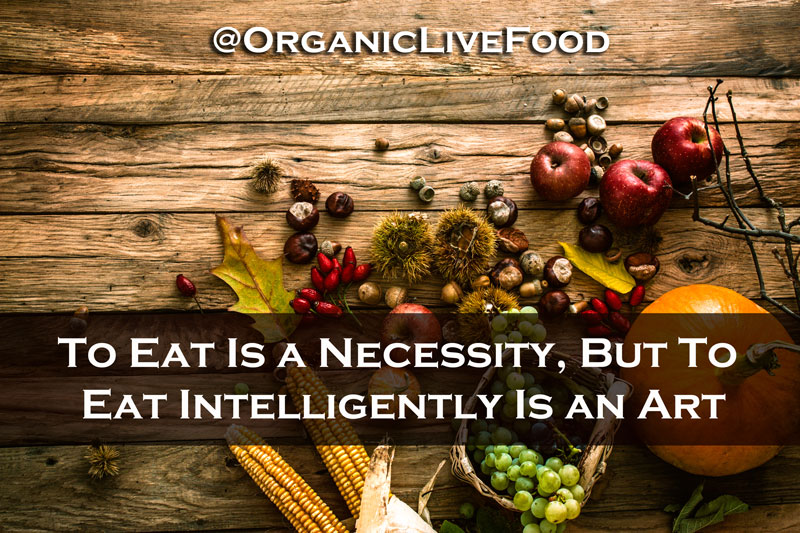
As we all know what you eat matters and your method of food preparation for yourself and your family matters even more. There is no secret that raw organic foods have more nutrients than cooked foods, but that doesn’t mean that you can’t prepare a healthy cooked meal for yourself and your loved ones.
Minerals and vitamins aren’t the main source of nutrition in our diet and micronutrients such as phytochemicals, bioflavonoids and antioxidants are a major source of nutrients in our foods. However micronutrients, bioflavonoids and antioxidants are very susceptible to heat and eating cooked foods all the time could deprive our bodies from these essential nutrients.
The main concept of health is best described in this question: H (Health) = N (Micronutrients) / C (Calories). The equation shows that you are healthier when you consume more micronutrients from raw foods and eat fewer calories.
So we can all agree that raw organic foods have a lot more advantages over cooked foods, but that doesn’t mean that you cannot cook dishes that are healthy and nutritious. In fact, you could always include some cooked foods in your diet that are still nutritious and have fiber and plenty of essential minerals.
1. Here are cooked foods high in fiber and nutrients:
2. Stop frying, barbequing, grilling and cooking your food with high temperature:
One of the main tips for cooking a healthy meal for yourself and your family is to stop frying foods. Avoid all refined processed oils like hydrogenated vegetable oils, corn oil, canola oil, palm oil, sesame oil, cottonseed, safflower oil or margarine. You can use organic olive oil as salad dressing. Olive oil has low heat tolerance and heating olive oil makes it toxic and carcinogen. The best oils for cooking are organic grapeseed oil and organic coconut oil. Keep in mind that all oils are high in omega 6 and high intake of omega6 compared to omega 3 can cause inflammation.
3. Use proper cooking utensil (like iron, glass, stainless steel, or copper pans and pots)
The next tip for cooking is using a proper cooking utensil. Stop using non-stick cookware and get rid of Teflon or aluminum cookware in your kitchen. Teflon has toxic chemical C8 linked to cancer, immune system disorder, high blood pressure, thyroid and liver problems and higher cholesterol rate. The aluminum deposits in aluminum cookware have also been linked to brain and nervous system disorders such as Alzheimer’s. The chemicals in aluminum or non-stick cookware can accumulate in the body and lead to various chronic diseases. Replace all the cookware in your kitchen with iron, glass, stainless steel, or copper pans and pots.
4. Limit your salt intake:
An average American consumes 3400 mg of salt a day, however our bodies need less than 500 mg sodium a day to stay healthy. Usually if you eat your daily recommended vegetables, you get enough sodium by eating veggies like celery. Our bodies cannot get rid of the excessive amount of salt and it could result in weight gain, water retention, or hypertension (high blood pressure). Long-term high sodium intake can lead to many chronic diseases such as kidney disease, or cardiovascular disease. Stay away from processed foods, canned foods, and processed meat. Keep in mind that a roasted beef sandwich has three to four times more salt than what our body needs. When cooking or dining at home, limit the use of salt in your diet.
5. Add herbs and spices to your dishes for taste and nutrition
Adding herbs and spices is a great way of adding taste and nutrition in your meals. Instead of salt which is harmful for your body, you could add the following herbs and spices to your dishes. Here are some herbs and spices beneficial for your health: